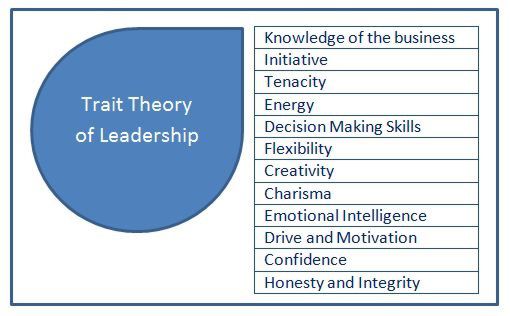Great leaders know how to manage not just behaviors, but the things that cause them.

[PHOTO: FLICKR USER ALFREDO CASTILLA]
Great leaders boast a range of skills and traits, but one of the most underrated is a keen grasp of psychology. When you understand what motivates people’s actions and perceptions–for instance, why they respond in particular ways in certain situations, or the reason why they’re procrastinating–you can adjust your management style to address the causes of those issues, rather than just their symptoms.
A basic working knowledge of psychology can also help leaders become more self-aware. And that can become a virtuous circle, helping you help others attain self-mastery. Here are three key psychological traits effective leaders understand.
1. MOTIVATION
For the most part, people’s actions are motivated towards reward and away from pain. And while there’s a whole field of study devoted to figuring out just what it is that motivates people in the workplace, pain is often an unavoidable part of many companies’ experiences as they grow and evolve. There are times when you have to overcome challenges and push through difficulties to get to the reward.
Inexperienced leaders aren’t always able to balance the two because they don’t have a firm enough grasp of motivation. Sometimes they’re too keen on avoiding pain in the short-term and motivate their employees with superficial incentives. Good leaders help their teams feel engaged and empowered no matter what hurdles they face. People are often motivated to do great work when they feel that work is meaningful. It’s important to show your team that what they’re doing has a tangible, valuable impact in the real world.
2. FEAR AND ANXIETY
Difficult situations come up no matter who you are or where you work. Effective leaders have to know how to deal with those emotions–in their team members as well as in themselves–in order to make smart decisions. If you can only be counted on to exercise good judgment when things are going smoothly, you aren’t an effective leader just yet.
It starts by recognizing that fear can be an overpowering emotion in business situations. Controlling it isn’t easy, but experience and mindfulness are key. Good leaders know how to place into context the factors that generate anxiety, then think rationally about tackling them.
The goal is to circumvent the automatic, fight-or-flight response we all experience in situations that make us afraid–in other words, mastering instinctual reactions so we can make logical choices. Leaders who can control their emotions and get back to reasoning can then show their teams how to do the same. One thing that helps is having an informed faith in your company’s product and vision. When you believe in what you’re doing, it’s easier to get past your fears and overcome whatever obstacles stand in your way.
3. UNCERTAINTY
There’s plenty of uncertainty and change in business–you might even say those two things are the only certainties there are. Still, most people don’t like change. Human beings excel at making predictions about the future, but we don’t always excel at making accurate predictions. That tendency to foresee negative outcomes is a good survival instinct, helping us avoid unnecessary risks. But it also causes much of the fear and anxiety that can be so paralyzing.
Good leaders know how to manage uncertainty about the future in ways that lead to good, forward-thinking choices, not decisions made out of fear. Getting this right isn’t easy, but it’s a prerequisite for innovation. Under the right conditions, being unsure what the future holds helps you see opportunities and stay open to information that keeps you on a steady course forward. In other words, effective leaders can harness uncertainty in order to take educated risks.
A very simplistic view of leadership might have it that leaders are just more courageous than “ordinary people.” But it might be truer to say that good leaders have simply learned to understand some of the fundamentals of workplace psychology. At all events, leaders need to be able to see what others might have a tendency to miss. If you can understand why people think and behave in certain ways, you can make smart decisions and keep your team engaged no matter what’s thrown at you.

:max_bytes(150000):strip_icc()/What-is-the-trait-theory-of-leadership-2795322-5b61dc6746e0fb005014ecc7.png)
No comments:
Post a Comment